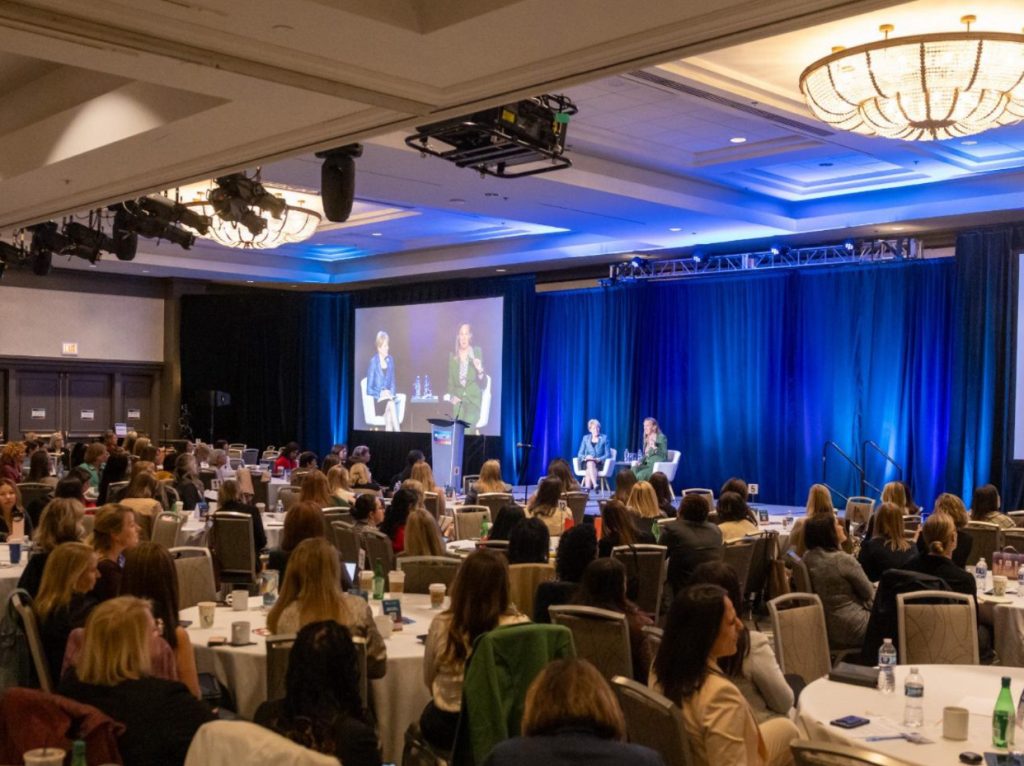Powering Up Your Panel: 5 Must-Ask Questions for a Flawless Panel Discussion
Your essential guide to creating a seamless and professional panel discussion.
Panel discussions are one of the most dynamic parts of any event, but they’re also one of the most complex to get right. From managing multiple speakers to handling audience Q&A, a lot can go wrong. The good news? It’s completely avoidable with the right preparation.
At AV Pro Connections, we’ve helped countless event planners pull off seamless panel discussions and learned that readiness is everything. So, how do you know if your panel is truly ready for prime time? Here are five questions to ask your AV team as you plan:

1. What’s the plan for the panel’s microphones?
This is the most critical question. One microphone isn’t a one-size-fits-all solution. The type of mic you choose can make or break the discussion.
Key considerations:
* For seated panelists: Will you use discreet tabletop mics or lavalier (clip-on) mics for mobility?
* For the moderator: Will the moderator have a separate mic to handle transitions and Q&A from the audience?
* For the audience: How will you handle questions from the floor? A dedicated handheld mic ensures every question is heard clearly.
* For seated panelists: Will you use discreet tabletop mics or lavalier (clip-on) mics for mobility?
* For the moderator: Will the moderator have a separate mic to handle transitions and Q&A from the audience?
* For the audience: How will you handle questions from the floor? A dedicated handheld mic ensures every question is heard clearly.
2. How will panelists hear each other and the audience?
It’s easy to assume everyone on stage can hear everything, but that’s not always the case. Room acoustics, stage volume, and mic placement all affect the sound.
Ask your team about stage speakers. These speakers face the stage and are crucial for helping panelists hear each other and the audience, making the conversation feel natural. In the industry, they are often called “stage monitors” or “foldback speakers.”
* For hybrid panels: If you have remote speakers, a specific AV setup is needed to ensure they can hear the in-person conversation without a distracting echo.
* For hybrid panels: If you have remote speakers, a specific AV setup is needed to ensure they can hear the in-person conversation without a distracting echo.
3. What’s the backup plan for technology hiccups?
A proactive backup plan is the mark of a truly professional event. A strong AV team should have a contingency for every potential problem.
Essential backups:
* What happens if a wireless microphone’s battery dies mid-sentence?
* Is there a secondary laptop ready with the presentation slides in case the primary one fails?
* Is there a hardwired internet connection for livestreaming as a backup to the venue’s Wi-Fi?
* What happens if a wireless microphone’s battery dies mid-sentence?
* Is there a secondary laptop ready with the presentation slides in case the primary one fails?
* Is there a hardwired internet connection for livestreaming as a backup to the venue’s Wi-Fi?
4. What are the video and screen-sharing expectations?
If your panel includes a visual element, you need a clear plan for managing it.
Key questions for a smooth visual experience:
* How will remote speakers share their screens smoothly?
* How will the AV team transition from one speaker’s content to another’s?
* Will the in-person and virtual audiences see the same view? This is a key part of creating a cohesive hybrid experience.
* How will the AV team transition from one speaker’s content to another’s?
* Will the in-person and virtual audiences see the same view? This is a key part of creating a cohesive hybrid experience.
5. Do we have enough time for a real rehearsal?
A great panel isn’t just about the equipment; it’s about the people using it. Even confident presenters need a few minutes to get comfortable with the stage.
Schedule a technical run-through. This is the time for everyone—in-person and remote—to test their mics and see their presentation on screen. It’s also when you confirm who’s advancing the slides, who’s holding the mic, and who’s managing the remote speakers.
Don’t let a technical hiccup ruin your panel’s potential. By asking these key questions, you can ensure your speakers and your audience have a seamless and impactful experience.
Takeaway
Save this handy list to ask your AV team when preparing for your next panel discussion.
5 AV Team Questions to Prepare for a Panel Discussion
1. Microphones: What types of microphones will be used (tabletop, lavalier, handheld)?
2. On-Stage Audio: How will panelists hear each other and the audience? (Ask about stage monitors.)
3. Backup Plan: What’s the contingency for technology hiccups like dead batteries or Wi-Fi issues?
4. Visuals: How will remote and in-person audiences see the same content?
5. Rehearsal: Is there a dedicated time slot for a full technical run-through with all speakers?
Looking to ensure your next panel is a success? Contact AV Pro Connections today to learn how our team can help you with your upcoming event.


